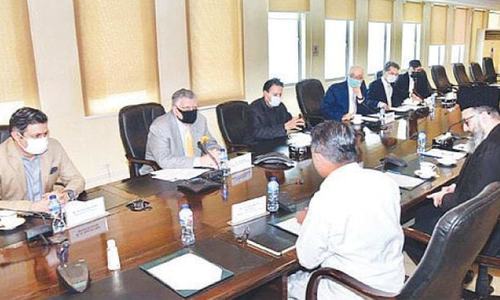ISLAMABAD: While criticising the power companies for rampant power cuts, the National Electric Power Regulatory Authority (Nepra) on Thursday finalised Rs2.86 per unit additional fuel cost adjustment (FCA) for ex-Wapda distribution companies (Discos) and Rs4.83 per unit for K-Electric with a cumulative financial impact of about Rs44 billion for electricity sold in March.
The additional FCAs for both Discos and KE were finalised at separate public hearings presided over by Nepra Chairman Tauseef H. Farooqui who said these increases had been worked out on the basis of information available but could slightly vary at the time of notification in a couple of days on further verification of data and evidence.
The revised rates, on formal notification, would be charged to consumers in the billing month of May and would yield about Rs29bn for Discos, Rs7.5bn for KE and about Rs7.5bn in additional revenue to the Federal Board of Revenue (FBR) in the shape of general sales tax.
Nepra chief Farooqui and member Sindh Rafique Shaikh lashed out at the power companies for carrying out loadshedding and inquired about the reasons.
Nepra lashes out at Discos over loadshedding
Head of the Central Power Purchasing Agency (CPPA) Rehan Akhtar, speaking on behalf of all Discos, was too innocent to be believed when he said the increase in temperatures had resulted in higher electricity demand.
“This is no justification,” Mr Farooqui retorted, saying the world had made such advancements that “you can have three-month advance weather forecasts very easily”.
Rehan Akhtar then put the blame on the Pakistan Metrological Department, saying it was not providing accurate weather forecasts.
Rafique Shaikh said summer was not coming for the first time, wondering why there was no fuel arrangement for power plants. The people are braving extremely hot conditions without electricity and those responsible are giving childish answers, he regretted.
The regulator called for fuel arrangements on an urgent basis and decided to take up the matter with the government as well.
Nepra finalised Rs4.83 per unit additional FCA for KE for March to provide about Rs7.5bn additional funds instead of its demand for Rs5.27 increase for Rs8.6bn.
Responding to a question, the KE team told the hearing that against a requirement of 190mmcfd (million cubic feet per day) of gas, the utility was receiving only 86mmcfd, resulting in a supply shortfall as well as higher fuel cost. It explained that the higher than reference fuel cost was because of an increase in the prices of furnace oil and LNG by 10pc and 40pc, respectively, besides a 9pc increase in the price of power supply from the national grid (CPPA).
An official of the National Power Control Centre (NPCC) reported that about 18,500MW electricity was currently being produced, leaving a shortfall of about 3,500MW.
The CPPA, on behalf of all ex-Wapda Discos, had sought an increase of Rs3.16 per unit in FCA to Rs9.4 for the electricity sold in March to generate about Rs32bn additional funds. It claimed that the consumers were charged a reference fuel cost of Rs6.23 per unit in March, but the actual cost turned out to be Rs9.4, hence an additional charge of about Rs3.16 per unit to consumers.
Data shows that the share of domestic fuel sources in overall power generation in March was robust (45 per cent). The share of hydropower supply in the overall basket stood at 16.35pc in March, slightly lower than 18.22pc in February but significantly better than just 5.83pc in January. Hydropower share stood at 20pc in December, 33.2pc in November and 23.26pc in October. Hydropower has no fuel cost.
As a result, the biggest contribution of over 25pc in overall power supply came from coal-based power plants in March, but this was significantly lower than February because of low coal stocks amid higher price. In January and February, coal-based generation contributed 33pc and 32pc to the overall power supply.
The coal-based power generation had only 24pc share in the national grid in December and 16.3pc in November. Its fuel cost also slightly reduced to Rs12.4 per unit in March from Rs13.1 in February and Rs14.10 in January.
This was followed by another major chunk of 19pc fuel generation from LNG, 15pc supply from nuclear power, 9.53pc from domestic gas and about 11pc from furnace oil-based plants in March.
In comparison, nuclear power plants contributed 14pc electricity to the national grid in January. The fuel cost of nuclear electricity slightly reduced to Rs1.03 per unit in March against Rs1.13 in February.
The cost of power generation from domestic gas increased to 9.53 per unit in March against Rs8.12 in February and Rs7.75 in January.
Three renewable energy sources — wind, bagasse and solar — together contributed 4.3pc power supply. Wind and solar have no fuel cost, while that of bagasse has been calculated at Rs5.98 per unit. The most expensive power generation came from furnace oil-based plants — Rs22.52 per unit.
Published in Dawn, April 28th, 2022














































